Jerrold Franklin9780805387339, 0805387331
Table of contents :
Front cover……Page 1
Title page……Page 3
Date-line……Page 4
Preface……Page 5
Contents……Page 7
1.1 Coulomb’s Law……Page 17
1.2 The Electric Field……Page 20
1.3 Electric Potential……Page 22
1.3.1 Potential Gradient……Page 25
1.4 Gauss’s Law……Page 28
1.4.1 Examples of Gauss’s Law……Page 30
1.4.2 Spherically Symmetric Charge (and Mass) Distributions……Page 32
1.5 The Variation of $vec{E}$……Page 35
1.5.1 Divergence……Page 36
1.5.2 Dirac Delta Function……Page 39
1.5.3 Curl……Page 41
1.6 Summary of Vector Calculus……Page 45
1.6.1 Operation by $nabla$……Page 46
1.6.2 Integral Theorems……Page 48
1.7 Problems……Page 50
2.1 Conductors……Page 53
2.2 Electrostatic Energy……Page 56
2.3.1 Fields Due to Dipoles……Page 62
2.3.2 Forces and Torques on Dipoles……Page 64
2.3.3 Dipole Singularity at $vec{r}=0$……Page 67
2.4 Electric Quadrupole Moment……Page 69
2.4.1 Dyadics……Page 70
2.4.2 Quadrupole Dyadic……Page 71
2.5 Problems……Page 76
3.1 Differential Form of Electrostatics……Page 79
3.1.1 Uniqueness Theorem……Page 80
3.2.1 Infinite Grounded Plane……Page 84
3.2.2 Conducting Sphere……Page 86
3.3.1 Cartesian Coordinates……Page 89
3.3.2 Fourier Series……Page 92
3.3.3 Fourier Sine Integrals……Page 95
3.4 Surface Green’s Function……Page 98
3.5 Problems……Page 102
4.1 General Orthogonal Coordinate Systems……Page 105
4.2 Spherical Coordinates……Page 107
4.2.1 Separation of Variables in Spherical Coordinates……Page 109
4.2.2 Azimuthal Symmetry, Legendre Polynomials……Page 110
4.2.3 Boundary Value Problems with Azimuthal Symmetry……Page 116
4.2.4 Multipole Expansion……Page 120
4.2.5 Spherical Harmonics……Page 125
4.3 Cylindrical Coordinates……Page 133
4.3.1 Separation of Variables in Cylindrical Coordinates……Page 134
4.3.2 Two-Dimensional Cases (Polar Coordinates)……Page 135
4.3.3 Three-Dimensional Cases, Bessel Functions……Page 139
4.4 Problems……Page 148
5.2 Surface Boundary Conditions……Page 151
5.3 Green’s Function Solution of Poisson’s Equation……Page 152
5.5 Symmetry of the Green’s Function……Page 153
5.6 Green’s Reciprocity Theorem……Page 154
5.7 Green’s Functions for Specific Cases……Page 156
5.8.1 Construction of the Green’s Function from Eigenfunctions……Page 157
5.8.2 Reduction to a One-Dimensional Green’s Function……Page 158
5.9 Problems……Page 163
6.1 Polarization……Page 165
6.2 The Displacement Vector $vec{D}$……Page 166
6.3 Uniqueness Theorem with Polarization……Page 169
6.4.1 Boundary Conditions on $vec{D}$, $vec{E}$, and $phi$……Page 170
6.4.2 Needle or Lamina……Page 172
6.4.3 Capacitance……Page 173
6.4.4 Images……Page 174
6.4.5 Dielectric Sphere in a Uniform Electric Field……Page 176
6.4.6 Dielectric Sphere and Point Charge……Page 177
6.5 Induced Dipole-Dipole Force, the Van der Waals Force……Page 179
6.6.1 Microscopic Electric Field……Page 180
6.6.2 Clausius-Mossotti Relation……Page 182
6.6.3 Models for Molecular Polarization……Page 183
6.7 Electrostatic Energy in Dielectrics……Page 185
6.8 Forces on Dielectrics……Page 186
6.9.1 Current Density and Continuity Equation……Page 190
6.9.2 Ohm’s Law……Page 191
6.9.3 Relaxation Constant……Page 192
6.9.4 Effective Resistance……Page 193
6.10 Problems……Page 195
7.1 Magnetic Forces Between Electric Currents……Page 197
7.2 Units of Electricity and Magnetism……Page 199
7.3 The Magnetic Field $vec{B}$……Page 202
7.4 Applications of the Biot-Savart Law……Page 203
7.5 Magnetic Effects on Charged Particles……Page 206
7.6.1 Volume Current Density $vec{j}$……Page 209
7.6.2 Surface Current Density $vec{K}$……Page 210
7.6.3 Magnetic Effects of Moving Charges……Page 211
7.7 Differential Form of Magnetostatics……Page 212
7.8.1 Gauge Transformation……Page 214
7.8.2 Poisson’s Equation for $vec{A}$……Page 215
7.9 Ampere’s Circuital Law……Page 216
7.10 Magnetic Scalar Potential……Page 219
7.10.1 Magnetic Field of a Current Loop……Page 221
7.11.2 Magnetic Dipole Scalar Potential of a Current Loop……Page 225
7.11.3 Magnetic Dipole Vector Potential of a Current Loop……Page 226
7.11.4 Magnetic Dipole Moment of a Current Density……Page 228
7.11.5 Gyromagnetic Ratio……Page 229
7.11.6 The Zeeman Effect……Page 230
7.11.7 Magnetic Dipole Force, Torque, and Energy……Page 231
7.11.8 Fermi-Breit Interaction between Magnetic Dipoles……Page 234
7.12 Problems……Page 235
8.1 Magnetic Field Including Magnetization……Page 239
8.2 The $vec{H}$ Field, Susceptibility, and Permeability……Page 241
8.3 Comparison of Magnetostatics and Electrostatics……Page 244
8.5 Hysteresis……Page 245
8.6 Permanent Magnetism……Page 247
8.7 Magnetization of a Ferromagnetic Sphere……Page 248
8.8 The Use of the H Field for a Permanent Magnet……Page 249
8.9 Bar Magnet……Page 250
8.10 Magnetic Images……Page 254
8.11 Problems……Page 255
9.1 Faraday’s Law……Page 257
9.2 Inductance……Page 261
9.3 Displacement Current, Maxwell’s Equations……Page 263
9.4 Electromagnetic Energy……Page 264
9.4.1 Potential Energy in Matter……Page 265
9.5 Magnetic Energy……Page 267
9.6 Electromagnetic Momentum, Maxwell Stress Tensor……Page 269
9.6.1 Momentum in the Polarization and Magnetization Fields……Page 272
9.7 Application of the Stress Tensor……Page 274
9.8 Magnetic Monopoles……Page 275
9.8.1 Dirac Charge Quantization……Page 276
9.9 Problems……Page 278
10.1 Electromagnetic Waves from Maxwell’s Equations……Page 281
10.2 Energy and Momentum in an Electromagnetic Wave……Page 283
10.2.1 Radiation Pressure……Page 285
10.3.1 Polarized Light……Page 286
10.3.2 Circular Basis for Polarization……Page 287
10.3.3 Birefringence……Page 289
10.3.4 Unpolarized Light……Page 291
10.4 Reflection and Refraction at a Planar Interface……Page 292
10.4.1 Snell’sLaw……Page 293
10.4.2 Perpendicular Polarization……Page 294
10.4.3 Parallel Polarization……Page 296
10.4.5 Polarization by Reflection……Page 297
10.4.6 Total Internal Reflection……Page 299
10.4.7 Nonreflective Coating……Page 301
10.5 Problems……Page 303
11.1 Electromagnetic Waves in a Conducting Medium……Page 306
11.1.1 Poor Conductor……Page 308
11.2.1 Perfect Conductor……Page 309
11.2.2 Radiation Pressure……Page 310
11.2.3 Interface with a Good Conductor……Page 311
11.3.1 Molecular Model for Permittivity……Page 314
11.3.2 Dispersion and Absorption……Page 315
11.3.3 Conduction Electrons……Page 316
11.4 Causal Relation between $vec{D}$ and $vec{E}$……Page 317
11.5 Wave Packets……Page 320
11.5.1 Natural Line Width……Page 322
11.6.1 Group Velocity and Phase Velocity……Page 323
11.6.2 Spread of a Wave Packet……Page 325
11.6.3 No Electromagnetic Wave Travels Faster Than $c$……Page 326
11.7 Problems……Page 329
12.1 Cylindrical Wave Guides……Page 331
12.1.1 Phase and Group Velocities in a Wave Guide……Page 332
12.2 Eigenmodes in a Waveguide……Page 333
12.2.1 TEM Waves……Page 334
12.2.3 TE Waves……Page 336
12.2.4 Summary of TM and TE Modes……Page 337
12.2.5 Rectangular Wave Guides……Page 338
12.2.6 Circular Wave Guides……Page 340
12.3.1 Power Transmitted……Page 341
12.3.2 Losses and Attenuation……Page 343
12.4.1 Resonant Modes of a Cavity……Page 344
12.4.3 Circular Cylindrical Cavity……Page 346
12.4.4 Electromagnetic Energy in a Cavity……Page 347
12.4.5 Power Loss, Quality Factor……Page 349
12.5 Problems……Page 351
13.1 Wave Equation with Sources……Page 353
13.2 The Lorentz Gauge……Page 354
13.3 Retarded Solution of the Wave Equation……Page 355
13.4 Radiation Solution of the Wave Equation……Page 358
13.5 Center Fed Linear Antenna……Page 361
13.6 Electric Dipole Radiation……Page 364
13.7 Radiation by Atoms……Page 367
13.8 Larmor Formula for Radiation by an Accelerating Charge……Page 368
13.9 Magnetic Dipole Radiation……Page 371
13.10 Electric Quadrupole Radiation……Page 372
13.11.1 Electric Dipole Scattering……Page 376
13.11.2 Scattering by a Conducting Sphere, Magnetic Dipole Scattering……Page 379
13.12 Problems……Page 381
14.1 The Need for Relativity……Page 384
14.2 Mathematical Basis of Special Relativity, the Lorentz Transformation……Page 387
14.3.1 Relativistic Addition of Velocities……Page 390
14.3.2 Lorentz Contraction……Page 392
14.3.3 Time Dilation……Page 393
14.4 Mathematics of the Lorentz Transformation……Page 394
14.4.1 Three-Dimensional Rotations……Page 395
14.4.2 Lorentz Four-Vectors and Scalar Invariants……Page 398
14.5 Relativistic Space-Time……Page 402
14.5.1 The Light Cone……Page 403
14.5.2 Proper Time……Page 404
14.6.1 Four-Velocity……Page 406
14.6.2 Energy-Momentum Four-Vector……Page 407
14.6.3 $E = mc^2$……Page 408
14.7 Doppler Shift and Stellar Aberration……Page 409
14.8 Natural Relativistic Units, No More $c$……Page 411
14.9 Relativistic “Center of Mass”……Page 412
14.10.1 Charge-Current Four-Vector $j^mu$……Page 414
14.10.2 Lorentz Invariance of Charge……Page 415
14.10.3 The Four-Potential $A^mu$……Page 416
14.10.4 The Electromagnetic Field Tensor $F^munu$……Page 417
14.11 Problems……Page 420
15.1.1 Covariant Extension of $vec{F} = mvec{a}$……Page 423
15.1.2 Motion in a Magnetic Field……Page 424
15.1.3 Linear Accelerator……Page 425
15.2.1 Nonrelativistic Lagrangian……Page 426
15.2.2 Relativistic Lagrangian……Page 428
15.2.3 Hamiltonian for Electrodynamics……Page 430
15.3 Fields of a Charge Moving with Constant Velocity……Page 431
15.3.1 Energy Loss of a Moving Charge……Page 433
15.3.2 Interaction between Moving Charges……Page 435
15.4.1 Covariant Solution of the Wave Equation……Page 437
15.4.2 Lienard-Wiechert Potentials and Fields of a Moving Charge……Page 440
15.4.3 Constant Velocity Fields……Page 443
15.5 Electromagnetic Radiation by a Moving Charge……Page 444
15.5.1 Radiation with Acceleration Parallel to Velocity……Page 445
15.5.2 Radiation with Acceleration Perpendicular to Velocity……Page 447
15.5.3 Radiation from a Circular Orbit……Page 449
15.5.4 Relativistic Larmor formula……Page 452
15.6 Problems……Page 453
16.1 Looking Back……Page 455
16.2 Electromagnetism as a Gauge Theory……Page 457
16.3 Local Gauge Invariance as the Grand Unifier of Interactions……Page 460
16.4 Classical Electromagnetism and Quantum Electrodynamics……Page 462
16.5 Natural Units……Page 464
16.6 $alpha$……Page 467
A Conversion of Units……Page 471
B Derivatives of the Retarded Time……Page 473
Recommended Reading……Page 475
Index……Page 477
Back cover……Page 486
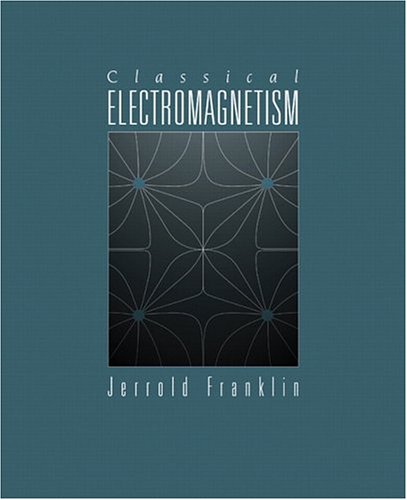


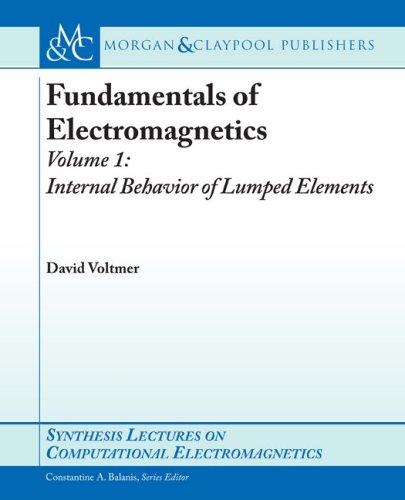
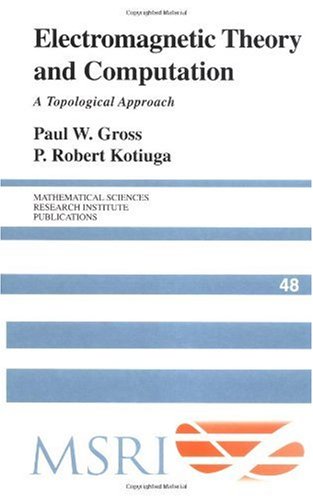
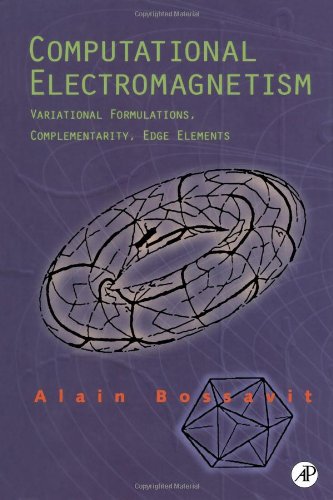
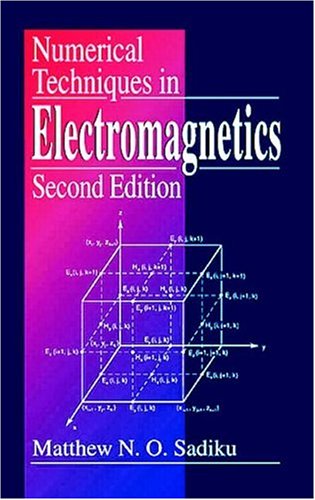

Reviews
There are no reviews yet.